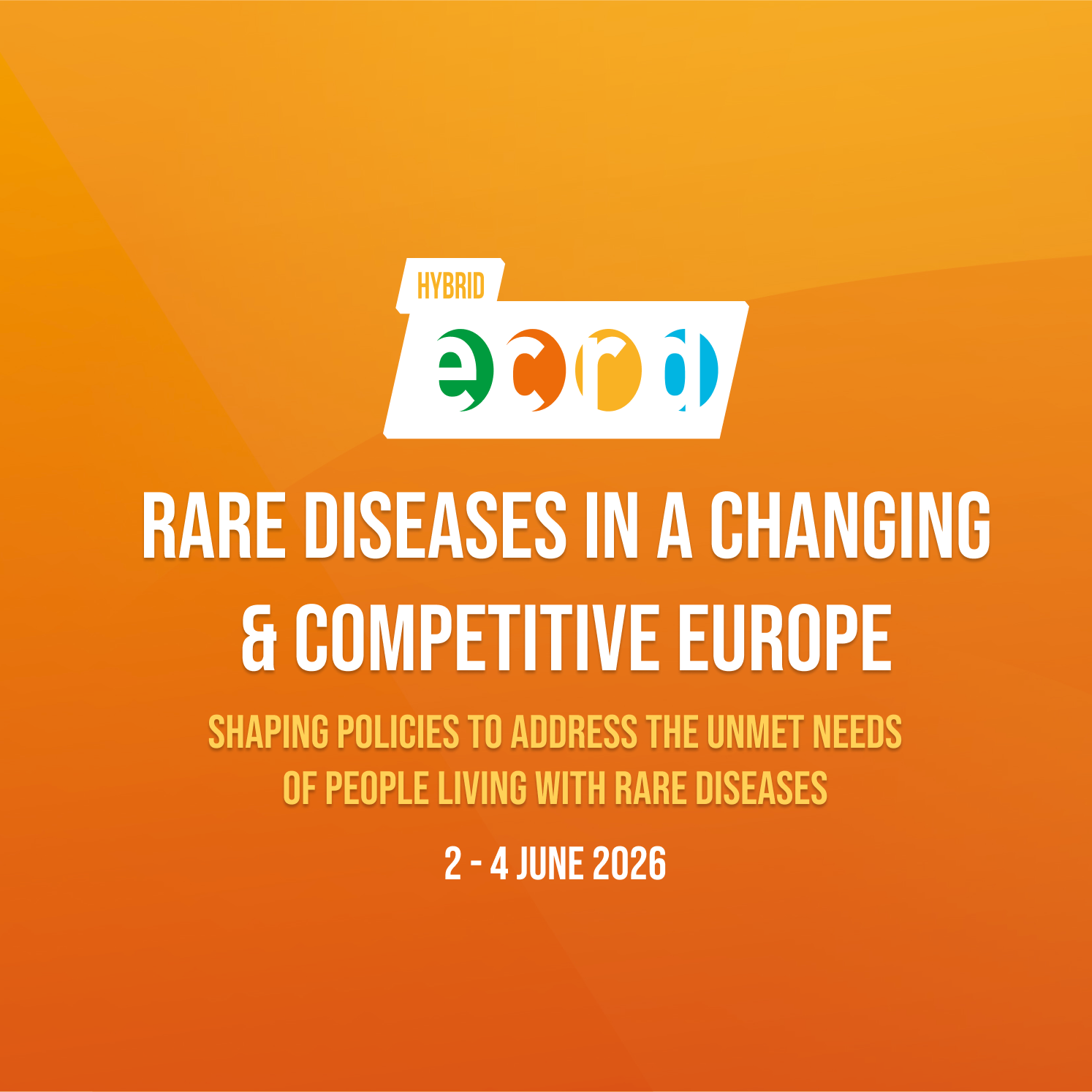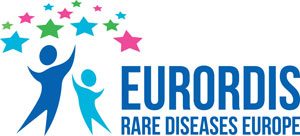Poster Showcase
The showcase may take a few moments to load – thank you for your patience!
Poster themes
Posters were centred around the recommended themes below, which correspond to the topics included in the Programme. Click on the titles to access more information.
RESEARCH & INNOVATION
We invite all stakeholders active in the rare disease community to provide examples of:
- Ultra-rare/rarer disease treatment and therapy development challenges.
- ATMP development in ultra-rare/rarer diseases.
- Innovative funding strategies/models and funding challenges to support research, development and treatments on ultra-rare/rarer diseases.
- Evidence generation for treatments and therapies of ultra-rare/rarer diseases.
ACCESS TO HIGHLY SPECIALIZED CARE
We invite all stakeholders active in the rare disease community to provide examples of:
- Unmet needs/challenges faced by ultra-rare disease patients or people who need to undergo complex surgical interventions to access cross-border highly specialised services.
- Supra national or cross-regional commissioning arrangements for highly specialised services (for example, Scandinavian collaboration, between Denmark, Sweden, Iceland, Norway & Finland to plan and provide highly specialised services for a very small population or UK centralised commissioning for highly specialised healthcare services).
- Cross-border access to highly specialised surgical interventions (cases of expert centres that deliver complex surgery to patients from other countries OR the expert travels to perform these interventions).
- Examples of EU cross-border arrangements to provide access to innovative therapies .
- European accreditation system and standards – for example, JACIE – Europe’s only official accreditation body in the field of haematopoietic stem cell transplantation and cellular therapy.
MENTAL HEALTH & WELLBEING
We invite all stakeholders active in the rare disease community to provide examples of:
- Publications, evidence and survey results of the impact of rare and undiagnosed conditions on the mental health of people living with a rare disease, for individual or grouping of rare conditions and early detection and preventative initiatives.
- Evidence of the population needs of people living with a rare disease that is common to the rare disease pathway, from the diagnostic odyssey through to receiving a diagnosis, ongoing surveillance and living with a rare disease etc.
- Evidence of the accumulation of intersectional needs faced by people living with a rare disease and their families on mental health and wellbeing.
- Awareness raising initiatives focusing on the unmet mental health needs in the rare disease community and tackling stigma and discrimination related to mental health and rare diseases.
- Best and promising practices on addressing the psychosocial needs of people living with a rare disease and other groups in vulnerable situations including national or international programmes.
- Best practice and innovative approaches to enhance medical and social care to be psychologically informed.
- Evidence-based studies that address the common needs of uncommon conditions, such as self-care and recovery, coping strategies to deal with uncertainty, medical trauma, carers fatigue, tiredness and burnout, etc.
RARE DISEASE NATIONAL PLANS
We invite all stakeholders active in the rare disease community to provide examples of:
In Europe:
- Best practices in national rare disease policies/policy making on governance.
- Best practices in national rare disease policies/policy making on monitoring/indicators.
- Best practices in national rare disease policies/policy making on patient engagement in national rare disease policy.
- Best practices in national rare disease policies/policy making on the integration of European policies.
Beyond Europe:
- Best practices in national rare disease policies/policy making.
- Examples of how to integrate and implement the UN General Assembly Resolution on Persons Living with Rare Diseases (PLWRD).
DIAGNOSIS & SCREENING
We invite all stakeholders active in the rare disease community to provide examples of:
- Reports on combined and novel approaches to diagnosis in a research and/or clinical setting.
- Examples of using digital technologies and/or symptom checkers to advance and speed up access to diagnosis.
- Improving the experiences of genetic counselling.
- Examples of advances in newborn screening programmes.
- Social implications of not having a diagnosis.
- Examples of undiagnosed disease programmes.
- Returning results and incidental findings to patients and families: examples of policies and studies.
ACCESS, AVAILABILITY AND AFFORDABILITY OF TREATMENTS
We invite all stakeholders active in the rare disease community to provide examples of:
- Innovative approaches to improve patient access in a broad spectrum of therapies/treatments.
- Methods to generate evidence to support pricing and reimbursement decisions.
- Examples of the impact and implications of early access schemes for rare disease patients.
- Pioneering funding strategies and solutions to alleviate the challenges surrounding access, affordability and availability of orphan medicinal products.
- Innovative methods of negotiations on pricing and reimbursement.
OPEN TOPIC
What would you like to say about your disease, your actions, your vision? We welcome poster abstracts that address the impact of intersectionality/ minority communities related to inequality.
Previous posters
If you’d like to take a look at past posters, please click here.




